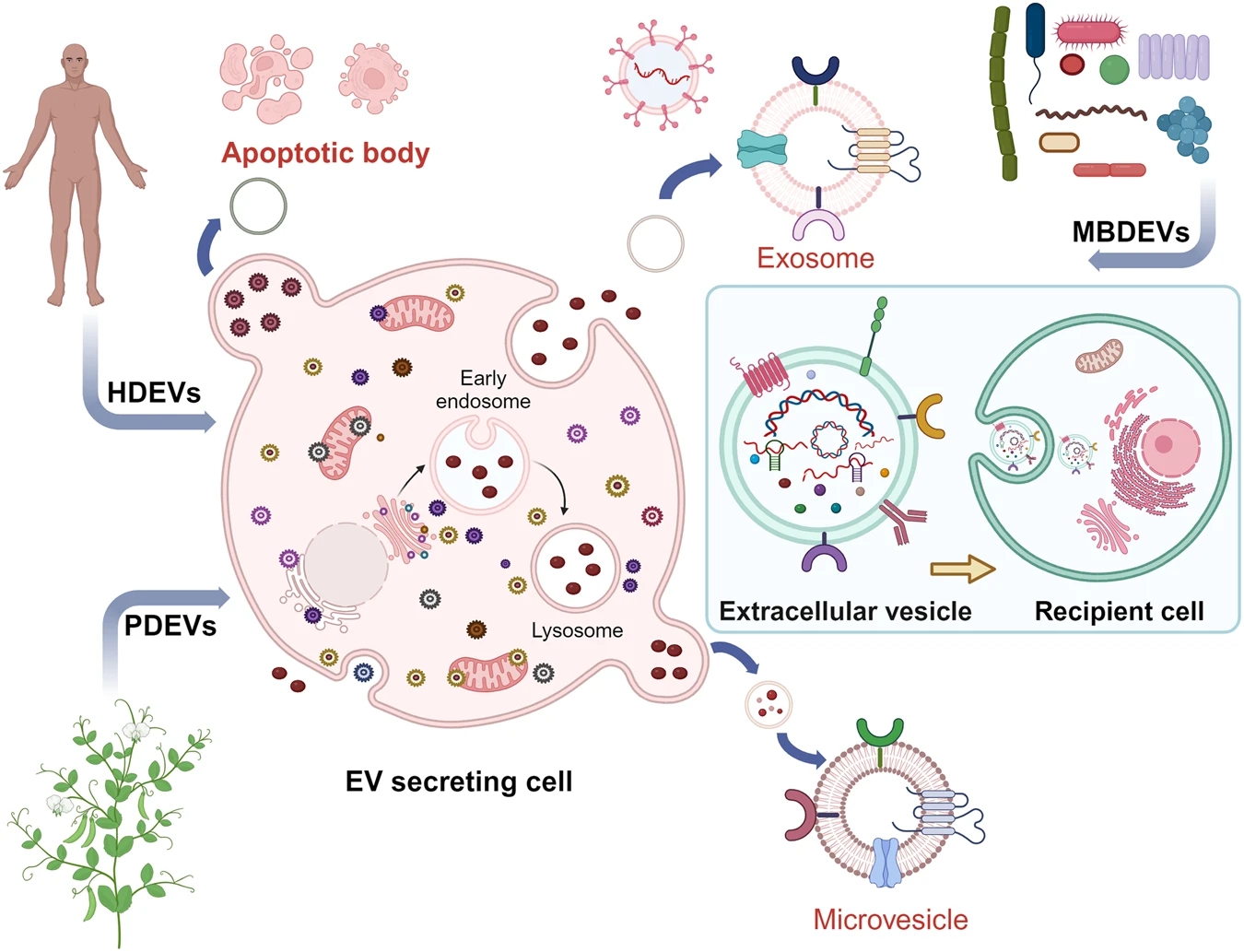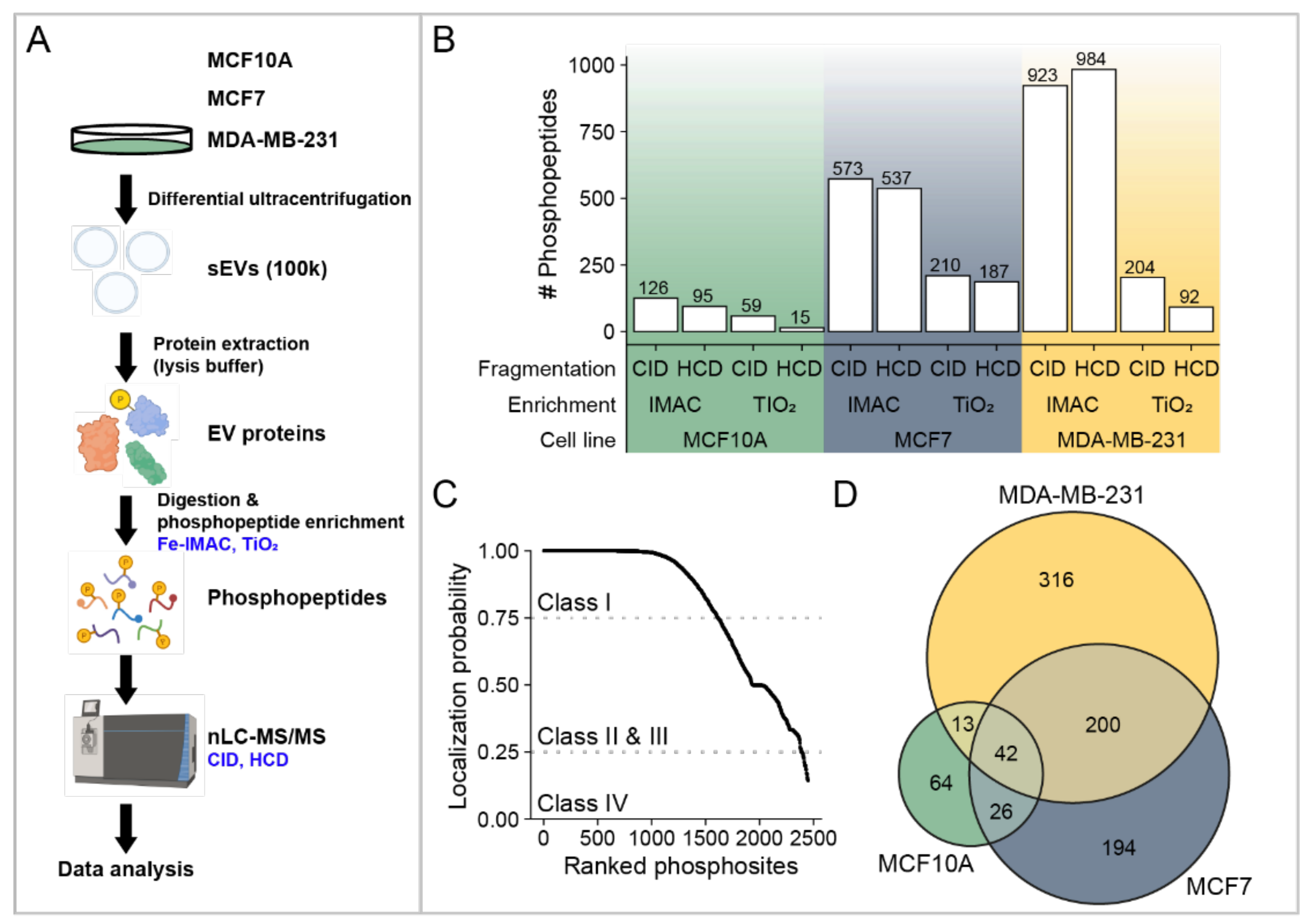Extracellular Vesicle related Research Service
Extracellular vesicles (EVs) are nano-sized membrane-bound vesicles actively secreted by cells into the extracellular environment. Found in biological fluids such as blood, saliva, urine, cerebrospinal fluid, and tissue interstitial fluid, EVs include several subtypes—exosomes, microvesicles, migrasomes, apoptotic bodies, and ectosomes. These vesicles play pivotal roles in intercellular communication, immune modulation, tumor progression, and metabolic homeostasis, making them an emerging focus in biomedical research.

Kumar, M. K. et al. STTT. 2024.
Figure 1. Formation Mechanisms and Functional Roles of Various EVs
Leveraging our cutting-edge platform, MtoZ Biolabs offers an end-to-end Extracellular Vesicle Related Research Service that integrates efficient isolation, high-resolution characterization, multi-omics profiling, and functional engineering. Our solutions empower researchers to uncover EV-driven mechanisms and accelerate clinical translation.
Services at MtoZ Biolabs
At MtoZ Biolabs, our Extracellular Vesicle Related Research Service spans the full research cycle and includes the following core service modules:
1. High-Yield EV Isolation and Purification
Tailored extraction methods for diverse sample types (e.g., plasma, culture media, tissue homogenates) using ultracentrifugation, density gradients, PEG precipitation, SEC, membrane filtration, or immunoaffinity enrichment.
2. Precise EV Characterization and Quantification
Characterize vesicle morphology and purity through TEM, NTA, flow cytometry, and Western blotting, ensuring accurate subtype identification and integrity.
3. Multi-Omics Profiling
Perform comprehensive omics analyses, including proteomics, transcriptomics (miRNA, lncRNA), lipidomics, and metabolomics, to elucidate the biological significance of EVs.
4. Mechanistic and Functional Validation
Conduct in vitro uptake assays, in vivo biodistribution studies, immune modulation tests, and target validation experiments.
5. EV Engineering and Customization
Customize vesicles with fluorescent/magnetic labeling, RNA or drug cargo loading, surface modification, and targeting ligand conjugation for therapeutic or diagnostic applications.
6. Integrated Bioinformatics Support
End-to-end bioinformatics assistance including data QC, omics integration, pathway enrichment, and predictive modeling to maximize research insights.
Why Choose MtoZ Biolabs?
MtoZ Biolabs delivers innovation-driven, customizable Extracellular Vesicle Related Research Service backed by our technical advantages:
✅ Flexible Multi-Platform Extraction Framework: Customized EV isolation solutions adapted to specific sample matrices and research goals.
✅ Subtype-Specific EV Profiling: Distinguish exosomes, microvesicles, migrasomes, and other vesicle types with high-resolution techniques and subtype-specific workflows.
✅ Validated Functional Assay Systems: Robust in vitro and in vivo assay pipelines for EV function discovery and biomarker validation.
✅ One-Time-Charge: Our pricing is transparent, no hidden fees or additional costs.
✅ High-Data-Quality: Deep data coverage with strict data quality control. AI-powered bioinformatics platform integrate all proteomics analysis data, providing clients with a comprehensive data report.
Applications
Our Extracellular Vesicle Related Research Service enables cutting-edge discoveries and translational breakthroughs in:
· Biomarker Discovery and Early Disease Screening Detect disease-specific miRNAs, proteins, and metabolites from EVs for diagnostic, prognostic, and predictive applications.
· Targeted Drug Delivery System Development Utilize EVs as biocompatible nanocarriers for RNA, proteins, or small molecules with enhanced targeting and minimal immunogenicity.
· Intercellular Communication Studies Decipher the signaling roles of EVs in immune regulation, tissue repair, inflammation, and cancer metastasis.
· Vaccine and Antigen Delivery Platforms Engineer EVs to improve stability and immunogenicity of vaccines and therapeutic proteins.
Case Study
Case 1: Phosphoproteomic Profiling of EVs Reveals Breast Cancer Biomarkers
In a 2022 study, researchers analyzed small EVs (sEVs) derived from breast cancer cell lines (MCF10A, MCF7, MDA-MB-231) using IMAC and TiO₂ enrichment strategies coupled with LC-MS/MS. A total of 2,450 phosphorylation sites across 855 proteins were identified. Enzymes such as ACLY, PFKM, SIRT1, and SIRT6 were highly phosphorylated in EVs from malignant cell lines, implicating their role in cancer metabolism and progression. These phosphorylated proteins are promising targets for early diagnostics and therapy development.

Minic, Z. et al. Biomedicines. 2022.
MtoZ Biolabs supports phosphoproteomic and multi-omics analysis of EVs isolated from various cells, tissues, and fluids, providing critical insights into tumor biology and therapeutic targeting.
FAQ
Q1: Can you recommend optimal EV isolation protocols based on sample type?
Yes. We tailor EV extraction workflows to match the characteristics of your biological material, ensuring high yield and quality.
Q2: Is it possible to determine the cellular origin of EVs?
Yes. We use surface markers (CD9, CD63, CD81) combined with cell-specific proteins or RNAs to confirm EV source identity.
Q3: Can EVs be extracted from tissue or low-volume samples?
Yes. We employ highly sensitive technologies including SEC and immunoaffinity capture to isolate EVs from complex or limited samples while preserving biological activity.
If you are planning to launch an Extracellular Vesicle Related Research Service project, MtoZ Biolabs is your trusted partner. Our expert team will provide a tailored service plan to support your EV research objectives and unlock new discoveries for scientific advancement and therapeutic innovation.
How to order?







